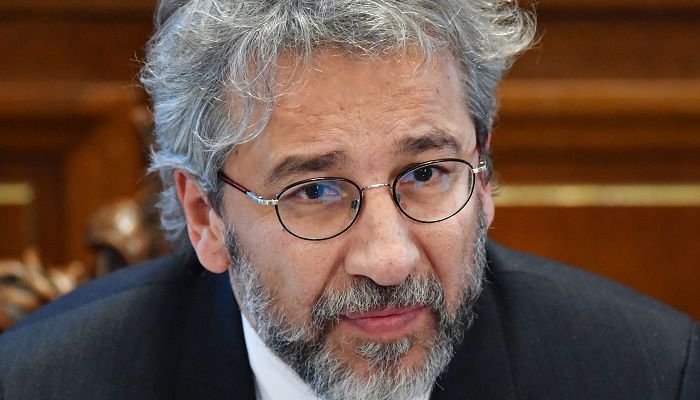Turkish authorities have issued an arrest warrant for journalist Can Dündar as part of an investigation into the anti-government Gezi Park protests in İstanbul in 2013 against the rule ofthen-Prime Minister and current President Recep Tayyip Erdoğan, the state-run Anadolu news agency said on Wednesday.
Prosecutors claimed he played an active role in the protests and provoked public unrest through social media. They also said he supported members of a terrorist organization against the police, the news agency said.
It is not clear how the warrant can be served because Dündar has left the country.
Dündar, a former editor of the opposition Cumhuriyet newspaper, was sentenced in 2016 to five years for publishing a video purporting to show Turkey’s intelligence agency trucking weapons into Syria. He was released pending appeal and went abroad.
Hundreds of thousands of people marched in 2013 to protest a plan to build a replica of an Ottoman barracks in Gezi Park in the Taksim neighborhood of İstanbul. The protests turned into a direct challenge to Erdoğan’s government.
“#HepmizGezideydik We feel proud,” Dündar tweeted on Wednesday, sharing Anadolu’s story about his arrest warrant. The hashtag translates to “We were all at Gezi”.
Two weeks ago 13 people were arrested as part of the Gezi investigation.
Erdoğan says the protests were organized and financed by Osman Kavala, a businessman and rights activist. Kavala was detained more than a year ago in connection with the investigation. He has not been charged over the protests and denies the claims against him.
The prosecutor also said Dündar was in contact with Kavala during the protests in a written arrest request to the court, Anadolu reported.
Aside from the investigation into the Gezi Park protests, authorities have detained tens of thousands of people they suspectof opposing Erdoğan’s government in the wake of a coup attempt in 2016.
Turkey’s Western allies have voiced concern over the crackdown on journalists, academics and rights activists and criticized Erdoğan for using it to muzzle dissent and increase his own power.



